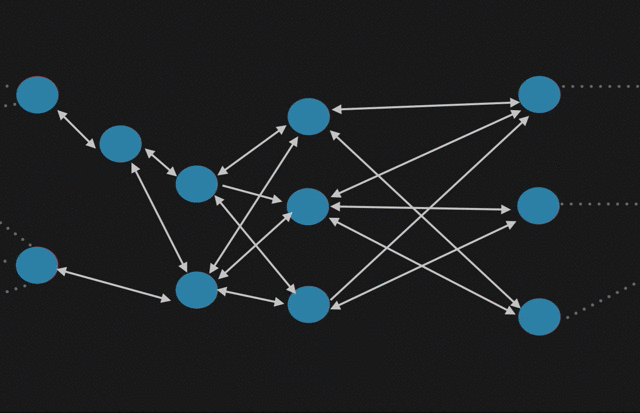Peerster is a project fully written in Go that aims to create a full enviroment to emulate a distributed network using the Gossip Protocol.
Peerster is part of the practical projects from the subject Decentralized Systems Engineering
Gossip protocols are distributed exchange protocols for robust information exchange, typically deployed on dynamic network topologies, e.g, because nodes can join and leave the network, they are mobile, their connectivity varies, etc. Examples of applications are ad-hoc communication between self-driving cars, peer-to-peer networks that broadcast a TV program, sensor nodes that detect fire hazard in remote areas. The way gossip protocols spread information resembles gossipping in real life: a rumor may be heard by many people, although they don’t hear it directly from the rumor initiator. The figure below depicts a gossip protocol.
 (source: introduction-to-gossip)
(source: introduction-to-gossip)
When a node joins a gossip protocol, it has the contact information (e.g., network address) of a few nodes it can send messages to. For instance, node C in the figure above knows the addresses of nodes E and F. Additionally, when a node receives a message, it learns the address of the sender. As an example, node C learns the address of node A when it receives the message from A.
Each node in Peerster acts as a gossiper, as depicted above, but also exposes an API to
clients to allow them to send messages, list received messages etc. The client could, in
principle, run either locally, on the same machine, or remotely.The gossiper communicates
with other peers on the gossipPort, and with clients on the UIPort.
Below you can find the high-level design:
 (source: Decentralized Systems Engineering docs)
(source: Decentralized Systems Engineering docs)
- Create logger for each gossiper
- Create separate entropyTimer handler
- Document CLI/Web interface
- More documentation
